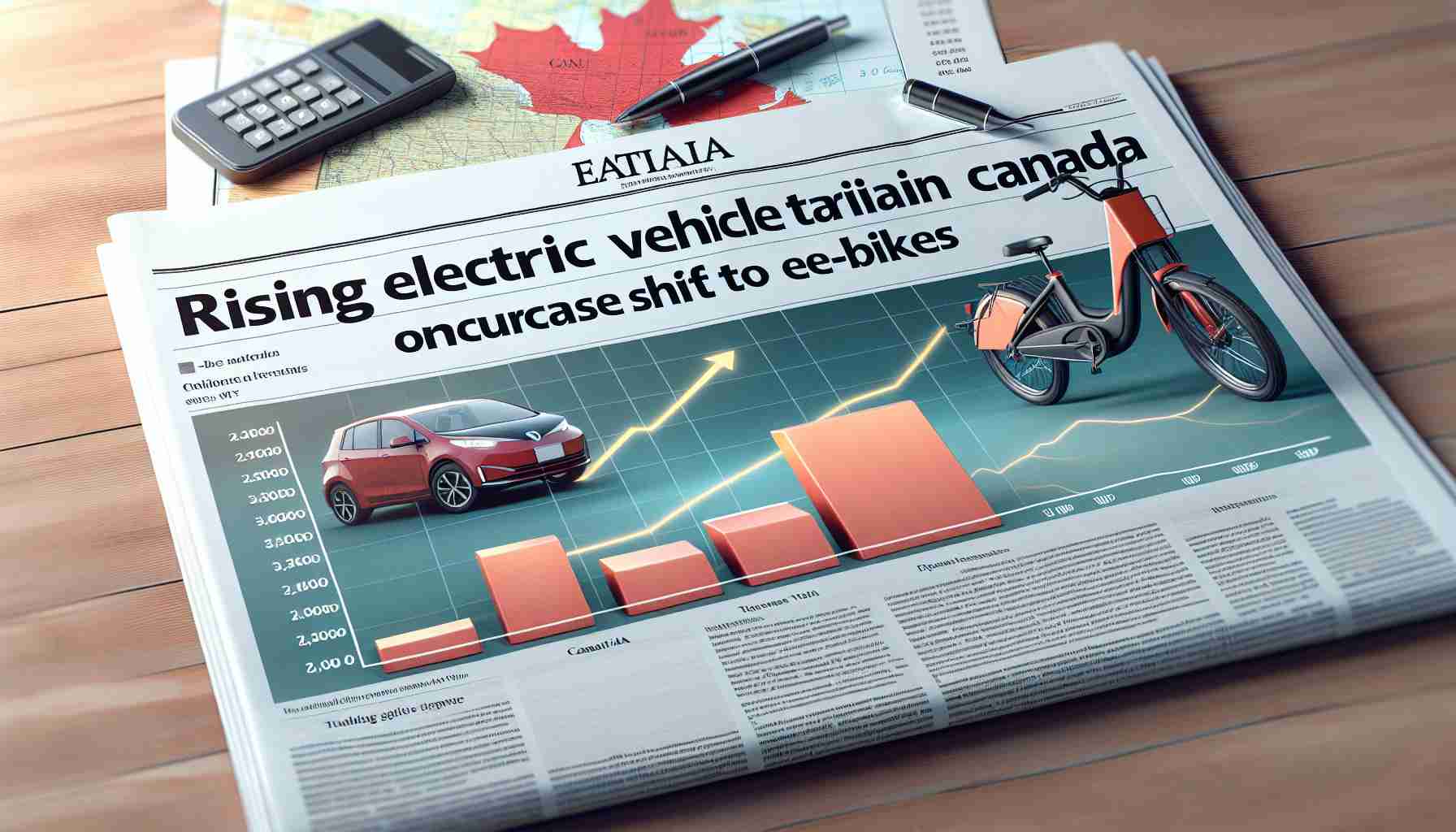With the Canadian government considering increased tariffs on electric vehicles (EVs) imported from China, experts are cautioning that this could lead to higher prices for EVs in the country. This comes at a time when Canadians are already feeling the financial burden of vehicle ownership costs, such as payments, gas, and insurance. As a result, many individuals are seeking alternative modes of transportation.
One alternative that is gaining popularity is the electric-assisted bicycle, also known as an e-bike. Sales of e-bikes have been rising steadily, not just in Canada, but also in the United States. According to data from the U.S. Department of Energy, e-bike sales in the U.S. jumped from 287,000 in 2019 to 1.1 million in 2022.
A recent survey conducted by Toyota Canada revealed that a majority of Canadians are postponing major purchases, including buying a personal vehicle. The survey also highlighted that 59 percent of Canadians believe it is less financially feasible to own a vehicle in today’s economy compared to their parents’ generation.
In light of these findings, many Canadians are considering the cost-saving benefits of using e-bikes instead of cars. The average cost of owning a car in Canada, including expenses like gas, maintenance, insurance, parking, and interest, amounts to approximately $1,077 per month. For many individuals, this cost is no longer justifiable, given the current cost of living.
E-bikes offer a cost-effective and eco-friendly alternative to traditional vehicles. They provide individuals with the flexibility of commuting within a certain distance, especially for those living in urban areas. With an electric assist, e-bikes can cover longer distances and can be combined with public transportation for added convenience.
Moreover, e-bikes are not limited to a specific demographic. They are a “great leveller,” according to Doug Clark, president of Bike Calgary. E-bikes make cycling more accessible for a wider range of people, including the elderly and those who may not be as physically fit.
As Canada reassesses its stance on imposing tariffs on EVs, the rising popularity of e-bikes indicates a shifting preference among Canadians. With its cost-saving benefits and contribution to sustainable transportation, the e-bike market is expected to continue growing in the coming years.
The electric-assisted bicycle (e-bike) industry is experiencing significant growth in Canada and the United States. With the Canadian government considering increased tariffs on imported electric vehicles from China, experts suggest that this could lead to higher prices for EVs in the country. As a result, many Canadians are turning to e-bikes as a cost-effective alternative.
Sales of e-bikes have been steadily rising in both Canada and the United States. According to data from the U.S. Department of Energy, e-bike sales in the U.S. increased from 287,000 in 2019 to 1.1 million in 2022. This trend indicates a growing preference for e-bikes as a means of transportation.
One of the key factors driving the popularity of e-bikes is the rising cost of vehicle ownership. A recent survey by Toyota Canada found that a majority of Canadians are delaying major purchases, including buying personal vehicles. Additionally, 59 percent of Canadians believe that owning a vehicle is less financially feasible in today’s economy compared to their parents’ generation. The average cost of owning a car in Canada, including various expenses such as gas, maintenance, insurance, parking, and interest, amounts to approximately $1,077 per month. Many individuals find this cost difficult to justify, especially given the current cost of living.
E-bikes offer a cost-effective and eco-friendly alternative to traditional vehicles. They provide individuals with the flexibility to commute within a certain distance, particularly for those living in urban areas. The electric assist allows for longer distances to be covered and can be combined with public transportation for added convenience.
One of the significant advantages of e-bikes is their accessibility to a wide range of people. E-bikes are often referred to as a “great leveller” as they make cycling more accessible for those who may not be as physically fit or have mobility limitations. This includes the elderly and individuals who may have difficulty using traditional bicycles.
As Canada reevaluates the potential tariffs on imported EVs, the growing popularity of e-bikes highlights a shift in preference among Canadians. The market for e-bikes is expected to continue growing in the coming years due to its cost-saving benefits and contribution to sustainable transportation.
For more information on the e-bike industry and its potential growth, you can visit the following links:
– www.ebikes.ca: This website provides comprehensive information on e-bikes, including technical details, industry news, and market trends.
– Zero-Emission Vehicle Infrastructure Program: This initiative by the Government of Canada aims to accelerate the adoption of zero-emission vehicles, including e-bikes.
– www.statista.com: This website offers market forecasts and statistics on bicycle sales, including e-bikes, in Canada.
– www.caa.ca: The Canadian Automobile Association provides information on various modes of transportation and offers insights into the cost of vehicle ownership in Canada.







